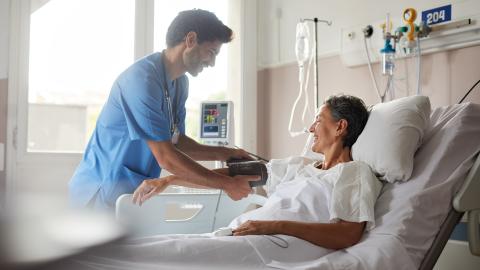Adjusting to life after cardiac surgery

It is important to remember that recovery after surgery may look different for each person. Some people may take longer to recover, while others may recover and resume their usual activities more quickly.
What to expect
To aid your recovery, taking care of your overall health is important. Surgery is not a cure. In many cases, people require long-term monitoring and follow-up from their health-care team (for example, your primary care provider, cardiologist, or internist).
When to contact your primary care provider
If you have questions about your recovery or how you can stay healthy, talk to your health-care team. And remember to tell your health-care team if there are any changes in your emotional and/or physical health.
Some ways you can aid your recovery and improve your health
- Starting a regular physical fitness program. 150 minutes of moderate to vigorous activity each week is recommended. Enroll in your local cardiac rehabilitation program (Healthy Heart program). Talk to your health-care team about how you can get started.
- Building healthy eating habits. If you have questions about what to include in a healthy diet, you can speak with a dietitian through participation in a cardiac rehabilitation program or by calling 8-1-1. You can also access resources at healthlink.bc.ca.
- Limiting your alcohol intake to a maximum of two drinks a day.
- Reducing or stopping cigarette smoking or recreational cannabis. Speak to your health-care team for more information on how to reduce or stop. Visit quitnow.ca or call the hotline at 1 (877) 455-2233.
- Managing existing medical conditions: If you have high blood pressure, diabetes, sleep apnea, or high cholesterol, it is important to have regular follow-up with your health-care team to ensure these conditions are being controlled.
- Staying connected. Enjoy relationships with your loved ones.
- Participating in a variety of activities you enjoy.
Pace yourself
While the road to recovery may seem overwhelming, it is important to make small, manageable changes rather than many big ones. Pace your activities by setting priorities and realistic goals about what you can do within a reasonable amount of time.
You can resume sexual activity when you think you have enough strength and your pain is under control. If you have difficulties, more time may be required. If problems persist, speak to your primary care provider.
If you are a commercial driver, please ask your doctor for permission before resuming commercial driving. In general, commercial drivers may not drive for three months.
Resources
-
-
heartandstroke.ca
-
quitnow.ca
-
quitnow hotline
-
Dietitian services
-
-
-
VGH Centre for Cardiovascular Health
-
Cardiac Rehabilitation (Healthy Heart Program)
-
Virtual Cardiac Rehab (VCR) Program
-














